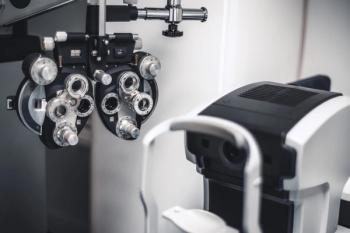
AOA 2025: A mental health primer for the optometric physician with Dr Nora Lee Cothran
Nora Lee Cothran, OD, FAAO, discussed the importance of optometrists addressing mental health with patients in their chair.
During the American Optometric Association's Optometry's Meeting 2025 in Minneapolis, Minnesota, Nora Lee Cothran, OD, FAAO, delivered a presentation titled "Hello Darkness, My Old Friend: A Mental Health Primer for the Optometric Physician." Her primary objective was to educate optometrists about mental health, focusing on depression, anxiety, suicide, and intervention strategies.
The lecture emphasized the importance of recognizing mental health changes in patients, staff, family members, and health care professionals. Cothran highlighted that mental health disorders can be triggered by significant life events like losing a loved one, experiencing divorce, or job loss, but can also emerge unexpectedly. She stressed the significance of observing behavioral changes, such as deteriorating personal hygiene or missed appointments, which could indicate underlying mental health issues. Cothran encouraged health care professionals to ask open-ended questions like "Are you okay?" and demonstrate genuine care, as sometimes simply showing someone they are valued can be life-changing. The presentation covered various mental health conditions, including major depressive disorder, seasonal affective disorder, and peripartum depression. She shared alarming statistics, such as 1 in 7 women experiencing peripartum depression, which is the leading cause of maternal mortality in the US.
A critical aspect of her talk was destigmatizing suicide discussions. Cothran emphasized that talking about suicide does not drive individuals toward it but can actually prevent it by making people feel supported and understood. She noted that during psychological distress, individuals might not think rationally, and compassionate intervention could be life-saving. Cothran also discussed how chronic or sight-threatening conditions impact mental health. For instance, 60% of stroke patients experience poststroke depression, which increases the risk of subsequent strokes and mortality.
Cothran's core message was for health care professionals to adopt a holistic approach to patient care. By looking beyond medical symptoms and considering patients' entire well-being, doctors can provide more comprehensive and compassionate care. She urged her colleagues to be observant, supportive, and proactive in addressing mental health concerns. The lecture concluded with a powerful call to action: Health care professionals should look out for their patients, family members, and themselves, recognizing that mental health is an integral part of overall health.
Newsletter
Want more insights like this? Subscribe to Optometry Times and get clinical pearls and practice tips delivered straight to your inbox.















































